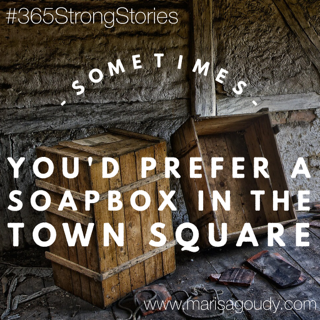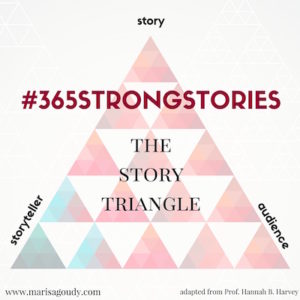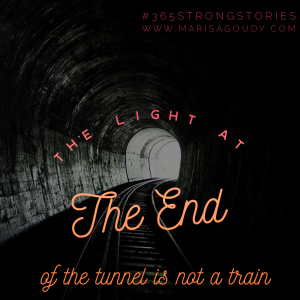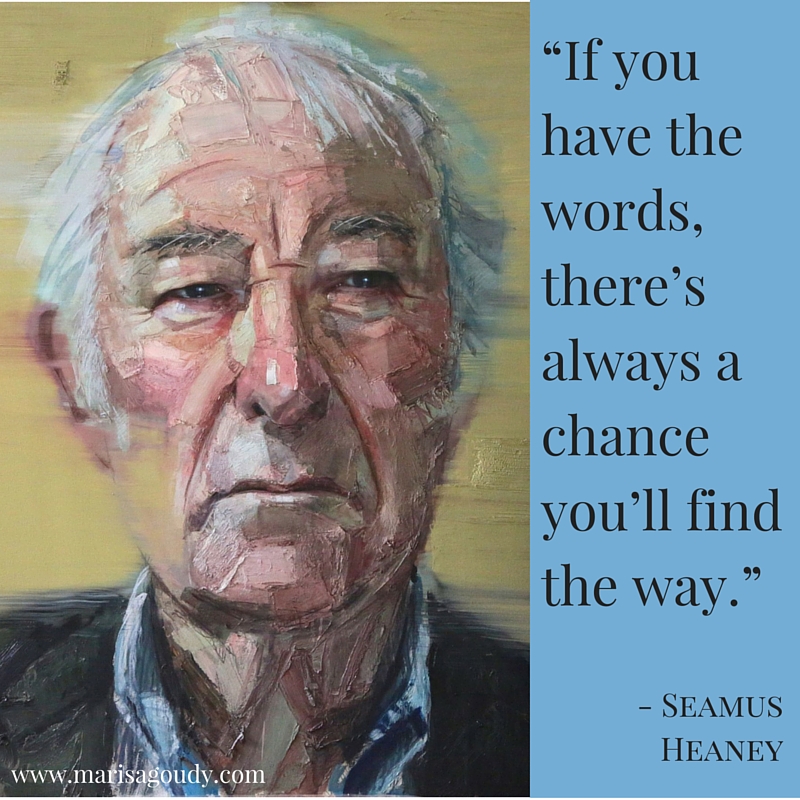
BLOG
What an Irish Goddess Can Teach You About Writing & Marketing Your Practice
If I had one wish for you, it would be that you would stand sovereign in your life, in your story, and, yes, in the marketplace.
Sovereignty is at the heart personal fulfillment and professional success. When you are Sovereign, you are the confident, compassionate ruler of your own life. You don't assume that you can control everything, but you are sure of your worth and guided by your dedication to the greater good.
For the healer, therapist, or coach who wants to change lives with her vision and her work, sovereignty is a beautiful thing to aspire to.
A quick Irish history lesson (and a good story to tell over a few pints of Guinness!)
But, before it was applied to the modern individual, “sovereignty” has belonged in discussions of royalty and statecraft.
At the heart of Celtic myth - and particularly Irish myth - sits the Sovereignty Goddess. She is divinity made flesh and an embodiment of the land itself. In order for the king to take the throne and guarantee the fertility of his realm, he had to win favor with this otherworldly woman. And then she took him to bed to seal the deal.
Across mountains meant to be her breasts and across rivers meant to be her blood or tears, battles were waged in her name. The Sovereignty Goddess did not rule, you see. She was the power behind the throne. Or, perhaps, it's better to say the power before the throne.
She supported his royal cause and she crowned the king, but then, she had to stand aside and let him define his own destiny.
Centuries later, when the Irish farmers struggled under English rule, the Sovereignty Goddess reemerged in the folk tales. This time, she was a fairy woman representing dreams of independence. The goddess would appear to young men in a dream and incite them to take a stand for themselves, their people, and their country.
(Does this sound a but like what you do for clients? You help them along their journey of becoming and giving them the tools to succeed on their own, right?)
What does the Sovereignty Goddess have to offer the modern transformation professional?
History is starved of powerful women, so this influential creature is a welcome shot of the feminine. Certainly she got my attention when I was a student, just as she got the attention of the people who used these myths to understand their world.
But a couple of generations of feminist literary and cultural criticism has taught us that “and then a woman appears” is not always a sign of gender equality and empowerment.
Though seducing mortals and actually being a country is all very fabulous, it’s quite disempowering. The goddess is momentarily star of the origin story, but then she is pushed offstage until the hero decides to invade a neighboring kingdom in her honor.
With this in mind, what can a king-making, rabble rousing Sovereignty Goddess do for the transformation professional on their own quest to change the world?
Well, being an essential part of the prologue or “just” having a recurring role in the supporting cast is actually what being a healer is all about.
5 Lessons About Storytelling & Marketing that Only a Sovereignty Goddess Could Teach You
When you’re a therapist or healing professional writing in support of your own work, the Sovereignty Goddess can be the perfect model.
As the writer or the healer, you’re not the star. The reader is the hero. The client is the hero.
Your role is to awaken, inspire, support, facilitate. Though you hope to sustain a long term relationship with your readers and your clients, the focus is on their process and growth, not your role as guide.
Here are five ways to embody the Sovereignty Goddess and make a difference in your business and in people’s lives:
Live the Legend: Like the Sovereignty Goddess, you need a powerful legend.
Through your writing and branding, you can build visibility and a strong reputation that invites people to learn more about what you offer. Intrigued by your story as well as the social proof (what people are saying about you), prospective clients (or, perhaps, perspective heroes) will be excited to explore how you can help them rewrite their own stories.Embrace the Magic: The Sovereignty Goddess used magic to turn commoners into kings and warriors.
In our contemporary world, we have our own kinds of magic. After all, there’s something just a little mysterious in that alchemical process that turns ideas into words that help your ideal clients understand that you're the one who can help them become healed and whole.
We create and connect to magic through stories. When you sit down and write out your vision for your clients, describing what sort of transformation you know is possible, you are taking the first step in making heroes who, in turn, can be Sovereign in their own lives.Exercise Choice: Just as the goddess has the power to name her consort, you have a similar power when you decide on your ideal client and reader.
Choose someone who has the life experiences that your stories can speak to. Write for people who seek the outcomes that your work can promise. It’s in being choosy and specific that you’re most effective, telling stories that go deep and doing work that changes lives.Seek to Empower: When that young man laid down with the goddess, it was guaranteed that he’d arise an empowered man ready to make his own way in the world.
Your hero client/reader is going to use the seeds of your story to create his or her own great narrative. Ultimately, this is what you want: your audience’s new sense of success and happiness originates with you but does not permanently depend on you.
Practice Trust: The Sovereignty Goddess understood her role in the grand scheme of things: kings would pass on and young upstarts would need her to help them take their place. She trusted that in every king’s court, her story was told around the fire - the modern equivalent of being shared on the Facebook wall, the Pinterest board, and the Twitter stream.
Create content that matters to you and is designed to speak to your ideal readers and you can trust that your good work will inspire your hero client to share on your story (most likely by crediting your supporting role in their own remarkable journey).
This St. Patrick’s Day, as we celebrate all things Irish (both pagan and Christian), I’d be grateful if you shared the Sovereignty story with your community - who knows what getting in touch with their inner Celtic Goddess might do for them!
Do you need help discovering and telling your own Sovereign Story? The new program, Stand In Your Sovereign Story begins April 14.
2020 update: This post is three years old now, but some of these phrases ended up in my newly published book, The Sovereignty Knot: A Woman’s Way to Freedom, Power, Love, and Magic
Sometimes, you'd prefer a soapbox in the town square
 An ideal client becomes a match made in entrepreneurial heaven when she meets a tech mishap with "well, it is Mercury Retrograde..."
If you're not familiar with that concept, you and I can still be great friends, of course. And if you're wondering, Mercury Retrograde happens three or four times a year. The planet seems to move backwards for about three and a half weeks. During that time, things here on earth seem to go a bit haywire. Communications are garbled. Travel is difficult. Technology refuses to cooperate.
An ideal client becomes a match made in entrepreneurial heaven when she meets a tech mishap with "well, it is Mercury Retrograde..."
If you're not familiar with that concept, you and I can still be great friends, of course. And if you're wondering, Mercury Retrograde happens three or four times a year. The planet seems to move backwards for about three and a half weeks. During that time, things here on earth seem to go a bit haywire. Communications are garbled. Travel is difficult. Technology refuses to cooperate.
Standard astrological advice has it that you should avoid signing contracts and launching new endeavors. And every stargazer since the dawn of time recommends that you absolutely, never ever ever offer any webinars.
Today's Story Triangle webinar was a tech dis-AAAAA-ster. (But that's ok.)
I can't guarantee that 20 minutes of tech hiccups at the start of today's webinar will teach me to heed the ancients and stick to contemplatively "taking stock" during Retrograde. Nope, I'll just mutter about why everything seems so hard and retroactively check the calendar over at MysticMamma like I always have.
No, what I learned was that when you consistently deliver value to the people who need it, they trust you. And they'll stick with you when you frantically enter in the chat box "please bear with us, we're working on it!"
I am deeply grateful to the members of my community who reminded me to breathe and stuck around and told me "Thank you Marisa!
But I do fantasize about that soapbox
Once upon a time, when you had something to say, the only technology you needed was a loud voice. If you wanted to get all fancy, you borrowed a soap box so the crowd could see and it could become a "multimedia" presentation.
But, since you probably aren't going to be able to make it to Main Street in New Paltz, NY for the next Story Triangle session, I guess I'll stick to the internet.
I checked the calendar, and Mercury Retrograde ends on May 22. Let's do this thing again (perhaps with a more reliable webinar platform). Join me on May 24, will you?
Use the Story Triangle to Tell Stories that Work
 In some forgotten magazine, I once read a lament about how little fiction is written about the world of work.
When historians look back upon this time they might think we live in an age of passionate romance, of hideous crimes, of sweeping wars, and occasional zombie plagues and vampire infestations. They won't be able to look to that cultural signifier we call the novel to understand how many bloody hours we devote to emails and preparing reports and fiddling with "easy" tools like the LeadPages system.
In some forgotten magazine, I once read a lament about how little fiction is written about the world of work.
When historians look back upon this time they might think we live in an age of passionate romance, of hideous crimes, of sweeping wars, and occasional zombie plagues and vampire infestations. They won't be able to look to that cultural signifier we call the novel to understand how many bloody hours we devote to emails and preparing reports and fiddling with "easy" tools like the LeadPages system.
That said, these people from the future might be able to go to server farms to comb through our Gmail accounts to understand our daily preoccupations, but what will they really understand of our everyday lives by looking at all those alerts and notifications we skillfully dismiss and ignore?
I'm hustling through the completion of a major project. Ironically, though it's all about storytelling, I find that I'm having trouble living my own story through the haze of "busy." That's what happens when you hunch over a laptop perfecting copy and worrying over image selection and praying that all the intangible tech pieces will place nicely with one another.
Even though all this minutiae isn't in itself the stuff that legends are made of, the stories that I am empowering others to craft do have infinite potential. They can mean something to the storytellers and the audiences they're made for.
The everyday tasks of running an online business don’t lend themselves to become great stories. In my case, however, I hope that my own stretch of "mundane" work will empower you to tell stories that matter.
Join me for the next free Story Triangle class that is coming up on May 24. Who knows? The storytelling tools you learn to deepen your connection with clients might enable you tell the great story of what it means to run a business in the 21st century! Reserve your seat
The Light In the Tunnel is Not a Train
 My dad has taught me just about all the unusual expressions I use.
“We’re in the weeds” (we’re screwed). “86 it” (toss it). “Some days chickens, some days feathers” (you can’t win them all).
My dad has taught me just about all the unusual expressions I use.
“We’re in the weeds” (we’re screwed). “86 it” (toss it). “Some days chickens, some days feathers” (you can’t win them all).
He came of age in the restaurant industry, so these are probably the cleanest phrases you’ll ever hear in an industrial kitchen.
Today when I called my father to tell him that my storytelling for business webinar was a great success, I was finally able to talk about how bloody hard the journey to “yes!” has been. As an entrepreneur himself, he can relate to the bright dances in the sun that I want to share and the long shadowy walks I don’t want to talk about.
Perhaps he has been watching my struggles from afar and holding on to anecdote he shared with me for some time. It certainly isn’t something you tell someone unless they’re smiling and feeling a tiny bit invincible.
Back in one of the nastiest economic slumps he ever endured, he told me, he read an article with the headline that read something like “For the foreseeable future, the light at the end of the tunnel has been turned off.”
Going through that collectively must have been awful - even if misery loves company. So often, however, I know that we solopreneurs and private practice owners go through the same terror. We can't stand the thought that all this hard work won’t pay off, but we're too battered and tired to be hopeful. We’re terrified we’ll never get to the “I did it!” day.
This, of course, brought us to consider how, as a small business owner, you often wonder if the light you’re seeing is the promise of daylight or some terrible train bearing down on you.
At least for today, I am riding on that train and I see nothing but blue sky.
Thanks, Dad. And thanks to everyone in my community who participated in my Story Triangle webinar. You can still register to receive the recording (available through April 11).
The only inspirational quote you need as a writer & entrepreneur
 Nobel prize winning poet and Irishman Seamus Heaney's quote is scrawled on a post-it above my computer. It fights for space with love notes from my daughter and memos about my many accounting goofs, but it's the only inspirational line I keep in my line of sight.
Nobel prize winning poet and Irishman Seamus Heaney's quote is scrawled on a post-it above my computer. It fights for space with love notes from my daughter and memos about my many accounting goofs, but it's the only inspirational line I keep in my line of sight.
"If you have the words, there's always a chance you'll find the way" is the only guidance I need because it speaks to heart of my work as a writer and as an entrepreneur.
These words are going to open my Story Triangle webinar that's set for 1 PM ET tomorrow (Tuesday, April 5).
Even in our multimedia world where video talks and images sell, words are always at the heart of our work. We need the words to build the narratives that change minds and touch hearts.
We tell stories to find a way - a way to connect, to inspire, to build a business and a livelihood, and, ultimately to make this world more beautiful, bearable, and bold.
Please join me tomorrow. I'd be honored to show you a new way to use your words and stories.



